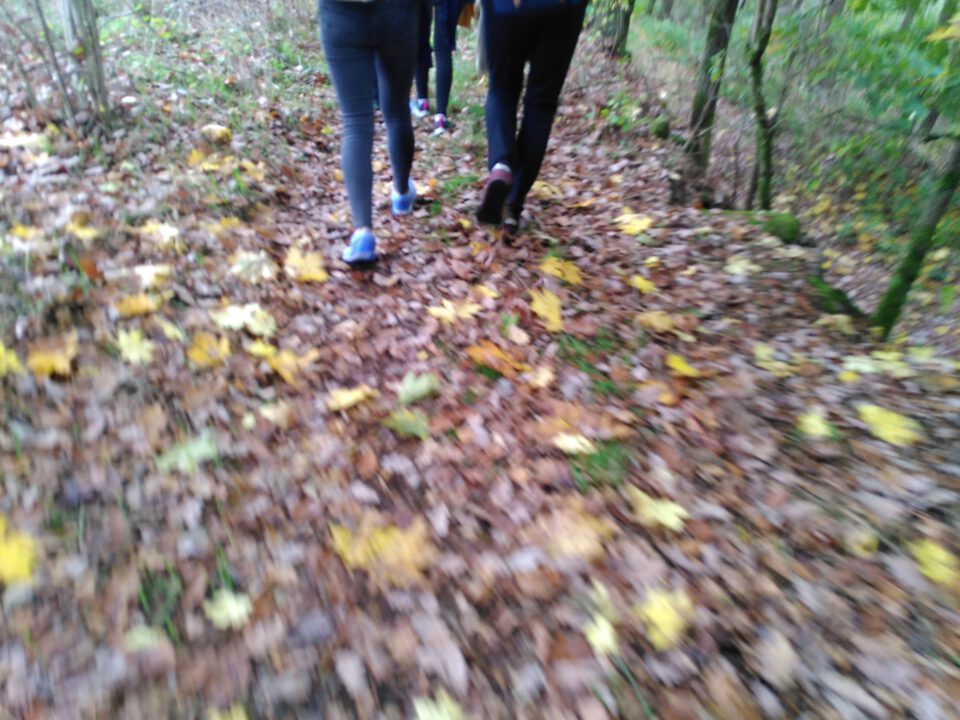
Jetzt ist die Zeit
“Und wenn ich wüsste, dass morgen die Welt unterginge, würde ich heute noch ein Apfelbäumchen pflanzen.”
Dieses Zitat wird dem Reformator Martin Luther zugeschrieben. Heute, am 31. Oktober, gedenken die lutherischen Kirchen seines – wohl legendarischen – “Thesenanschlags” zu Wittenberg. Der fromme Mönch Luther war nach sorgfältigem Studium der biblischen Texte, insbesondere der Paulusbriefe, zu dem Schluss gekommen, dass die kirchliche Lehre und Praxis seiner Zeit einer Reform bedurfte. Die Zeit war reif dafür.
Am Feiertag Allerheiligen, dem 1. November, denken katholische Christ*innen weltweit an die “Heiligen” – Märtyrer und weitere Menschen, die ihren christlichen Glauben und ihre Berufung oft unter widrigen Bedingungen lebten und verkündeten. Moderne Heilige sind z. B. Óscar Romero, der Bischof, der am Altar erschossen wurde, weil er sich im Bürgerkriegsland El Salvador gegen die herrschenden Eliten stellte und für die Rechte der Armen kämpfte. Oder die albanische Ordensfrau Mutter Teresa, die sich in Kalkutta um Arme, Kranke und Sterbende kümmerte.
“Heilige” im Sinne des Neuen Testaments sind aber nicht nur diese herausragenden Gestalten. Folgt man dem Apostel Paulus, dann sind alle Getauften “Heilige”: Menschen, die durch Christus “geheiligt”, also angerührt und verwandelt wurden, so dass sie in der Lage sind, sich freizumachen von Egoismus und Kleingeistigkeit und als freie Menschen in der Liebe zu leben.
Reformationstag und Allerheiligen sind scheinbar Gegensätze: der eine ein rein evangelischer Feiertag, der andere ein rein katholischer. Schaut man aber aus einer etwas größeren Perspektive, dann haben sie eines gemeinsam: Sie fordern uns auf, mutig zu sein. Wir sind keine passiven Opfer irgendwelcher Verhältnisse. Wir haben die Fähigkeit und auch die Bestimmung, unser Leben und unsere Welt zu gestalten. Selbst wenn die Welt morgen unterginge, hätten wir immer noch die Möglichkeit, ein Apfelbäumchen der Hoffnung zu pflanzen.
Im Altgriechischen gibt es zwei Begriffe für Zeit: “Chronos”, das ist die Zeit, die Stück für Stück vergeht und sich mit Uhren und Kalendern messen lässt. “Kairos”, das ist die Zeit, die gerade jetzt “dran” ist und genutzt werden will. So, wie es in einem Lied heißt, das wir manchmal bei KHG-Gottesdiensten singen: “Jetzt ist die Zeit, jetzt ist die Stunde. Heute wird getan oder auch vertan, worauf es ankommt, wenn Er kommt” (A. Albrecht).
Zur richtigen Zeit handeln, verstehen, was jetzt “dran” ist – darauf kommt es an. Auch wenn das, was wir tun, vielleicht nicht immer genug oder immer richtig ist. Das war es auch bei Luther oder bei den katholischen Heiligen nicht. Wer viel tut, macht auch viele Fehler. Wer aber aus Angst, Fehler zu machen, passiv bleibt, der kann auch nichts bewegen – und wird früher oder später innerlich verkümmern.
Deshalb: Carpe Diem – pflücke den Tag! Empfange ihn als Geschenk, genieße ihn – und lebe ihn aktiv mit all seinen Herausforderungen. Oder, wie es Augustinus einmal formulierte: Liebe, und tue, was Du willst!
– English version –
Now is the time
“And if I knew that the world would end tomorrow, I would plant a little apple tree today.”
This quote is attributed to the reformer Martin Luther. Today, 31 October, the Lutheran churches commemorate his – arguably legendary – “posting of the theses” at Wittenberg. Luther, a pious monk, had come to the conclusion after careful study of the biblical texts, especially the Pauline epistles, that the church doctrine and practice of his time needed reform. The time was ripe for it.
On the feast day of All Saints, 1 November, Catholic Christians worldwide remember the “saints” – martyrs and others who lived and proclaimed their Christian faith and vocation often under adverse conditions. Modern saints include Óscar Romero, the bishop who was shot at the altar because he stood up to the ruling elites in the civil war country of El Salvador and fought for the rights of the poor. Or the Albanian nun Mother Teresa, who cared for the poor, the sick and the dying in Calcutta.
But “saints” in the sense of the New Testament are not only these outstanding figures. If one follows the Apostle Paul, then all the baptised are “saints”: People who have been “sanctified” by Christ, i.e. touched and transformed, so that they are able to free themselves from egoism and small-mindedness and live as free people in love.
Reformation Day and All Saints’ Day are seemingly opposites: the one a purely Protestant holiday, the other a purely Catholic one. But if you look at them from a somewhat broader perspective, they have one thing in common: they call on us to be courageous. We are not passive victims of any circumstances. We have the ability and also the destiny to shape our lives and our world. Even if the world were to end tomorrow, we would still have the opportunity to plant an apple tree of hope.
In ancient Greek there are two terms for time: “Chronos”, which is time that passes bit by bit and can be measured with clocks and calendars. “Kairos”, that is the time that is “on” right now and wants to be used. As it says in a song that we sometimes sing at KHG services: “Now is the time, now is the hour. Today is done or wasted, what matters when He comes” (A. Albrecht).
Acting at the right time, understanding what is “up” now – that is what matters. Even if what we do is perhaps not always enough or always right. Nor was it with Luther or the Catholic saints. Those who do a lot also make many mistakes. But if you remain passive out of fear of making mistakes, you can’t move anything either – and sooner or later you will wither away inside.
Therefore: Carpe Diem – pick the day! Receive it as a gift, enjoy it – and live it actively with all its challenges. Or, as Augustine once put it: Love, and do what you want!


